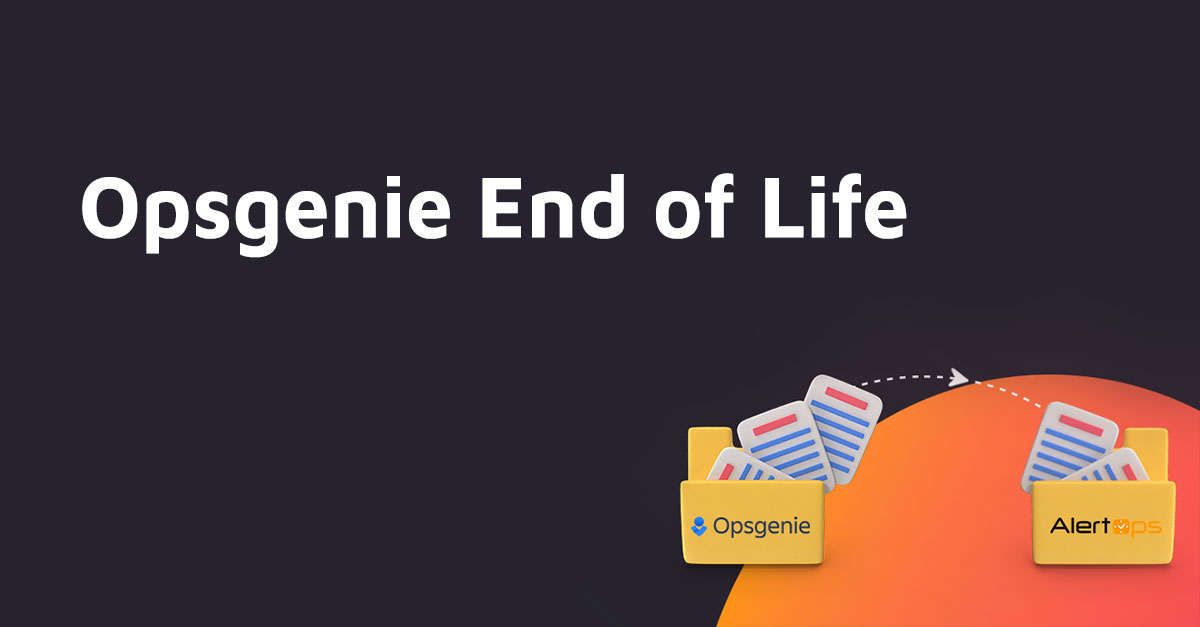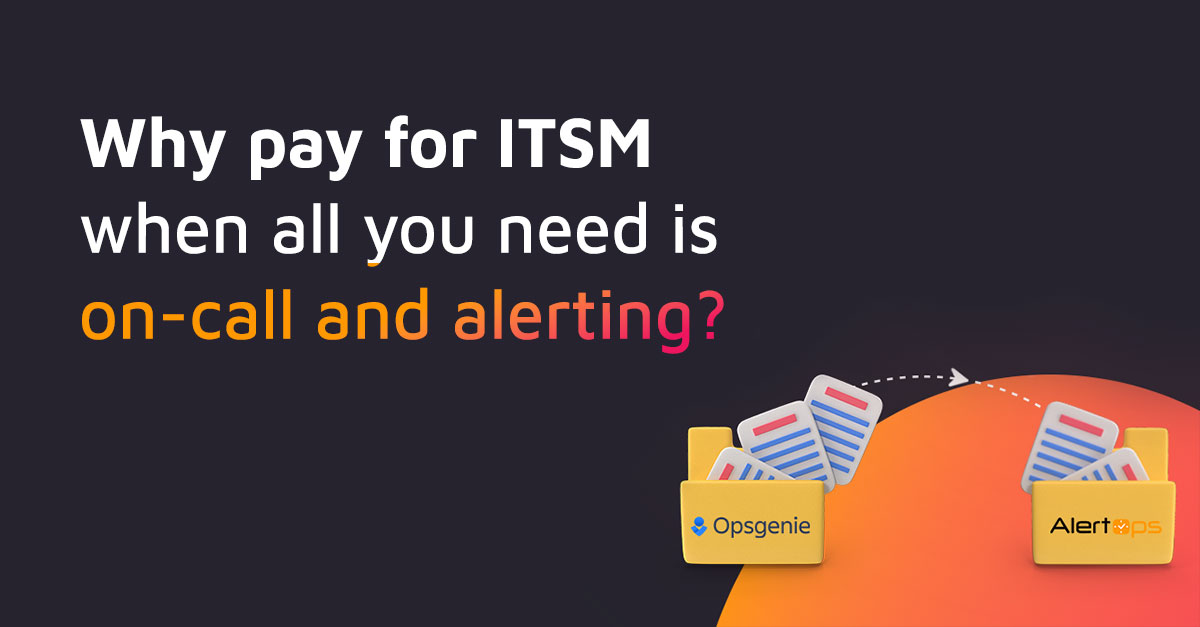AlertOps is the smart alternative for PagerDuty. Reasons why Businesses prefer AlertOps Features Over PagerDuty Pricing:
PagerDuty Pricing is an Expensive & confusing billing model.
Customers are not sure exactly which features they need to use when they sign up. After using PagerDuty, they discover they need to upgrade to another plan to get some features that they need. When compared to PagerDuty Pricing, AlertOps pricing plans are simpler and less confusing.
Alert Grouping
AlertOps has the feature to group alerts into an open alert within a specific time frame. PagerDuty only includes this in the AI Ops & Event Management Add-On. AlertOps offers alert grouping at a lower cost than PagerDuty Pricing.
Alert Thresholds
AlertOps includes the feature to set thresholds on an inbound integration. Thresholds allow suppression of alerts until a certain threshold has been reached. This allows for the problem to ‘self-heal’ and prevent unnecessary alerting to users. PagerDuty only includes this in the AI Ops & Event Management Add-On.
Automated Remediation Actions
AlertOps Workflows and Outbound Actions can be combined to automate remediation actions. PagerDuty only includes this in the AI Ops & Event Management Add-On.
AlertOps advanced workflows cost less than PagerDuty
PagerDuty includes Incident Workflows beginning with the Business Plan. AlertOps Workflows are included with the Enterprise Plan. With AlertOps Workflows, you can set triggers when the alert status changes, as well as when standard fields change. You can even set triggers based on custom fields, which can include Boolean fields. AlertOps Workflows can send messages to users or teams over any communication channel, including chat. Workflow messages include the ability to create dynamic messages where text from any data field can be included. When combined with Outbound Integrations, AlertOps offers virtually limitless possibilities, such as sending updates to external system such as ServiceNow or running automation actions such as restarting a service.
Scalability using a no-code platform
Because AlertOps is a purpose-built incident response platform, it has many of the essential features needed to integrate and system, manage on-call, reduce time to respond to incidents and keep stakeholders informed. All of this functionality is built-in to the AlertOps platform and can easily be extended using a no-code approach. Both PagerDuty and AlertOps offer full-featured APIs for those who want to write their own code, but for those customers that are not interested in developing, debugging and maintaining more code, AlertOps offers a tested and reliable platform that is purpose built for incident response needs.
Open APIs
Integrating with other systems is essential in modern software applications. This is especially true for SaaS applications, which is why AlertOps APIs are open APIs. Both the AlertOps inbound and outbound integrations can handle any JSON payload, which means that virtually any systems can be integrated with AlertOps. When APIs require custom code, whether it is to connect to and send data to an external system, or ingest a custom payload from an external system, this can add hidden and ongoing cost the total and ongoing system costs. PagerDuty customers have complained that custom integrations in PagerDuty don’t offer the same capabilities as pre-built integrations.
Built-in Major Incident Management features
Major incidents may not happen every day, but when they do happen, they must be managed in a completely different manner from on-call alerting. That’s why AlertOps Major Incident Management includes things like multi-channel, simultaneous alerting to multiple teams. Automated stakeholder communications using Workflows deliver timely updates using any communications channel, including chat tools such as Microsoft Teams and Slack.
More flexibility with ServiceNow Integrations
AlertOps Open API offers more flexibility in ServiceNow integrations than PagerDuty offers.
Better on-call scheduling
Customers sometimes have to code workarounds due to limitations with PagerDuty on-call scheduling. This is especially true when there are multiple teams involved, such as when a user needs to swap an on-call assignment with another user. AlertOps out-of-office is an easy-to-use self-service feature. A user can switch on-call assignments for multiple teams at once and assign a different on-call person for each team.
Alertops Pricing Plans
AlertOps – your premium incident management solution at unbeatable prices! Say goodbye to overpriced alternatives like PagerDuty. With AlertOps, you get top-notch features and exceptional support without breaking the bank. Our pricing plans are designed to fit your budget while providing robust functionality to streamline your incident response process. Compare the PagerDuty Pricing and see for yourself why AlertOps is the smart choice for your organization’s needs. Sign up now and experience superior incident management at a fraction of the cost!
Get unmatched power and support for less
 | ||
|---|---|---|
| ENTERPRISE($28 per user/month) | BUSINESS($41 per user/month) | |
| Contextual Search and Tagging | Yes | Yes |
| Advanced ITSM Integrations (ServiceNow, Remedy, Cherwell, etc.) | Yes | Yes |
| Dynamically Add Additional Responders | Yes | Yes |
| Post-Mortems | Yes | Yes |
| No-code Workflows | Yes | Yes |
| ChatOps tools integrations | Yes | Yes |
| One Touch Join to Conference Bridge | Yes | Yes |
| Advanced Conference Tools Integrations | Yes | Yes |
| Custom Stakeholder Templates | Yes | Yes |
| Alert Deduplication and Suppression | Yes | Add-on |
| Alert Field Enrichment | Yes | Add-on |
| Change Events | Yes | Add-on |
| Custom Change Events | Yes | Add-on |
| Noise Reduction | Yes | Add-on |
| Alert Thresholds | Yes | Add-on |
| Related Incidents | Yes | Add-on |
| Change Correlation | Yes | Add-on |
| Automated Remediation | Yes | Add-on |
| Pause Alert Notifications | Yes | Add-on |
| Team, Respondent and System Reporting | Yes | Add-on |
| Stakeholder Users | Yes | Add-on |
| Automation Actions | Yes | Add-on |
| Major Incident Playbooks | Yes | Add-on |
| 24/7 Critical Support | Yes | Add-on |
| Solutions Consulting | Yes | Add-on |



